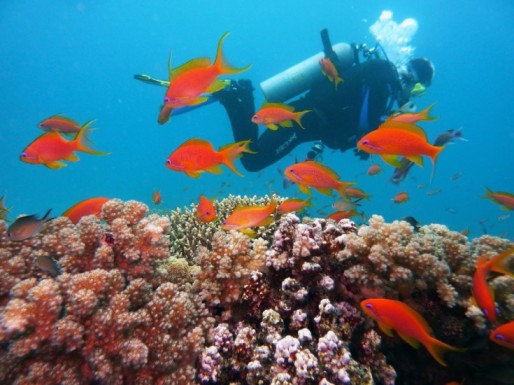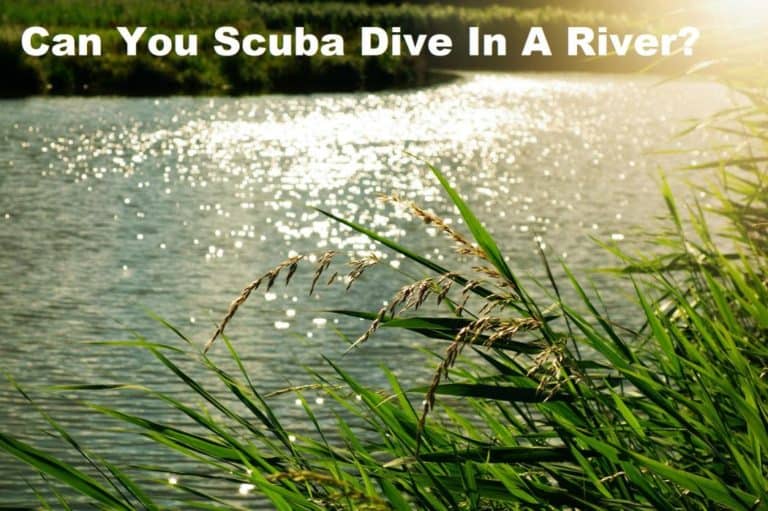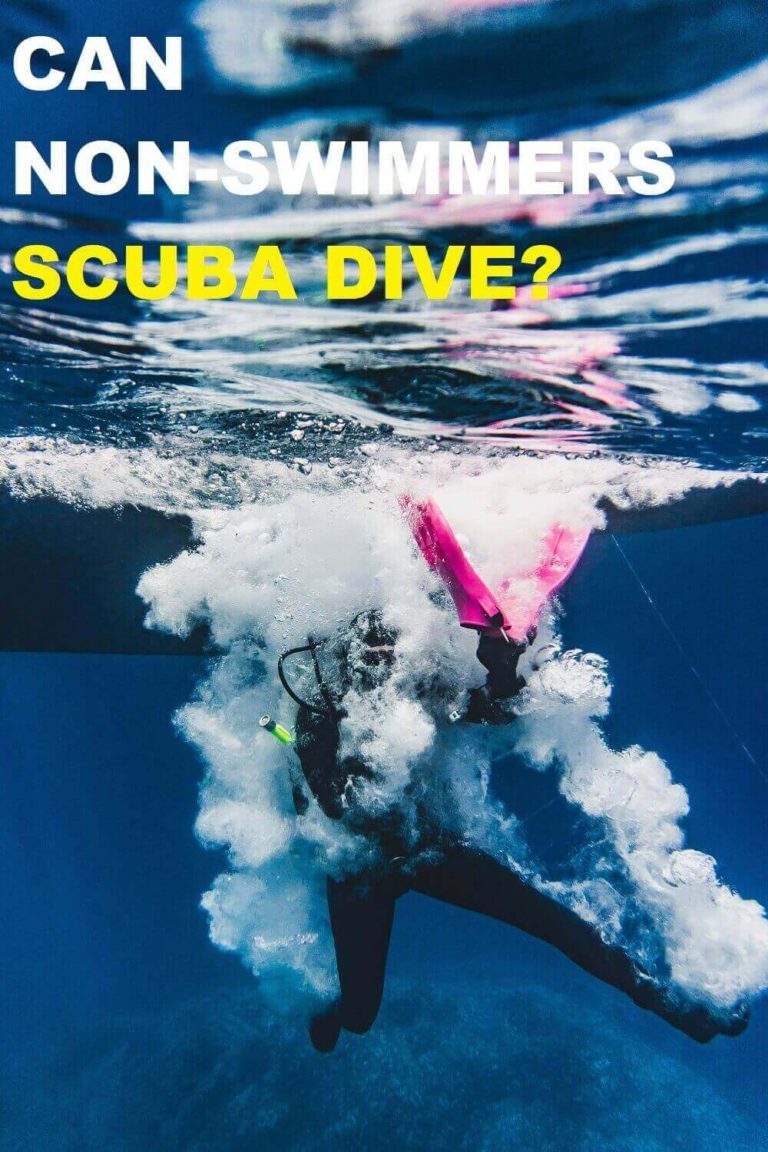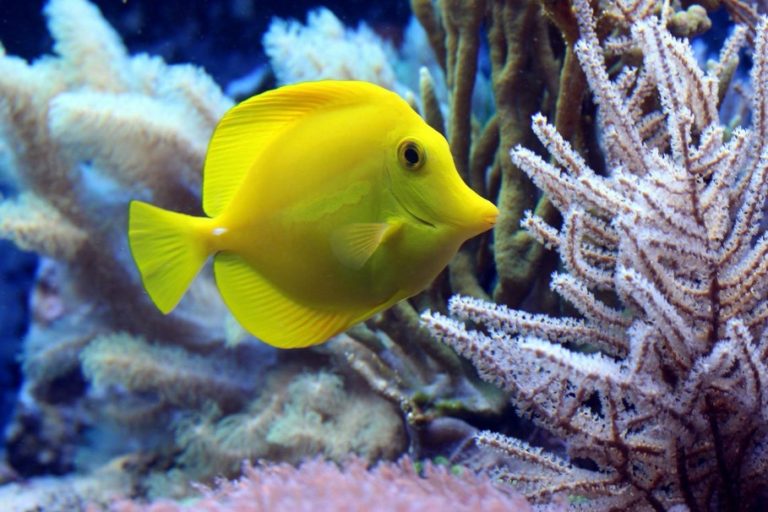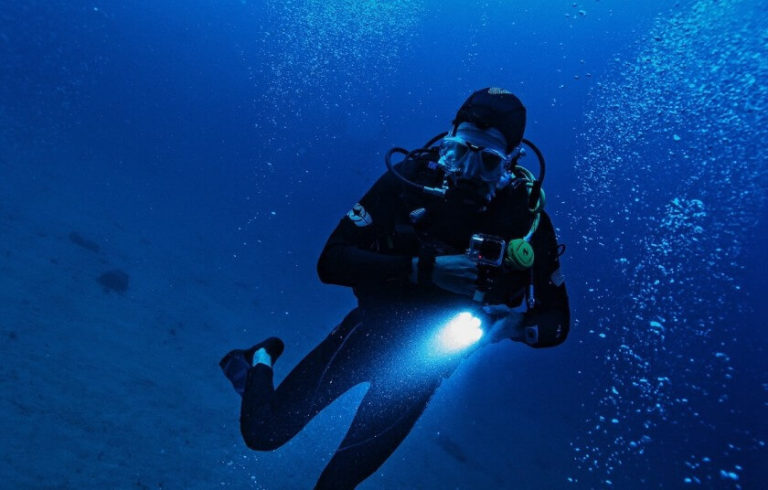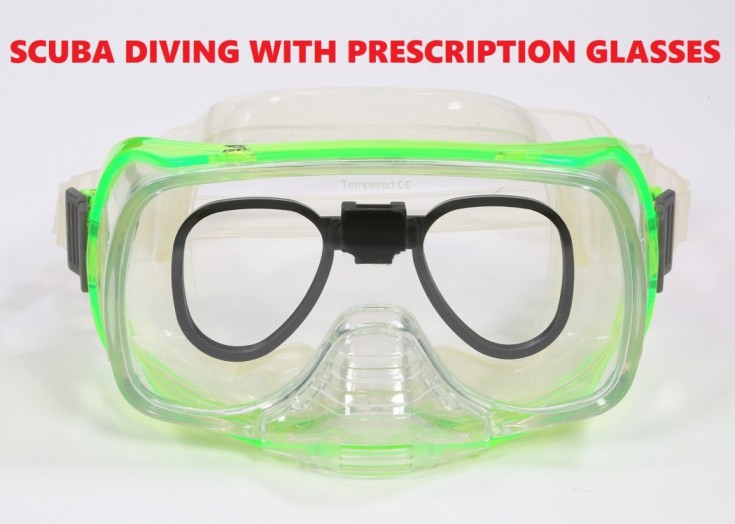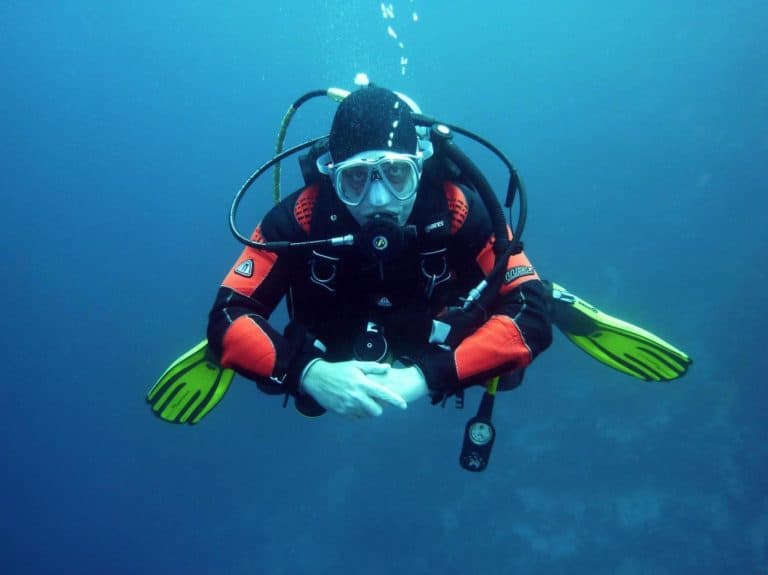Can You Go Scuba Diving In Thailand
Thailand is a popular tourist and scuba diving destination. The clear blue waters make it perfect for scuba divers to explore the vibrant underwater world. In 2011, Thailand banned scuba diving in 22 dive sites due to coral bleaching as this was damaging the ecosystem. If you are planning a trip to Thailand you may wonder can you go scuba diving in Thailand.
Yes, you can go scuba diving in Thailand. Despite the ban in some popular diving spots, you can still enjoy diving in many other locations across the country. The popular holiday destination is rich in diving spots as well as training centers in case you have no scuba diving experience.
Corals play a huge role in sustaining the marine ecosystem as well as protecting the shores from high tides. Unfortunately, coral reefs are also susceptible to damage from human activities and toxic chemicals found in many skin care products.
UV filters used in some sunscreens play a major role in bleaching corals and eventually killing them. One notorious filter is oxybenzone found in sunscreen and many other skin care products. Only a tiny drop of the chemical is required to cause bleaching of a massive coral reef.
Thailand as a popular holiday destination attracts thousands of tourists a year. This massive traffic increases the number of toxic chemicals making their way into the water causing immense damage.
Here in this article, I discussed in detail the toxic chemicals to avoid in your sunscreen and skin care products as well as listed the reef-safe sunscreen you can purchase. Just click on the link to read more here on my blog.
Today, we’ll look into scuba diving in Thailand, the costs, popular dive spots, what you need to know before scuba diving in Thailand and so much more.
Let’s dive into it!
Today’s #Scuba #diving picture.
Ornate Ghost #Pipefish.
Took this picture at #Richelieu Rock #Thailand. pic.twitter.com/z7j5CqgUQT
— Hiep Scuba (@HiepScuba) June 29, 2021
Where Was Scuba Diving Banned in Thailand?
If you are new to scuba diving you probably have no idea that there were scuba diving bans in Thailand some few years back.
Increased activities in popular dive spots destroy corals. This damage comes from toxic chemicals in skincare products, touching and stepping on corals, propelling engines on boats, anchoring into corals, and many more.
As mentioned earlier, Thailand is popular among scuba divers and other tourists making its waters more susceptible to damage.
Moreover, scuba diving training in Thailand is cheap compared to many other locations. Many tourists take advantage of this opportunity to get diver certified.
The availability of many diving spots, diverse marine life, and beautiful blue waters appeal to many venturing into the sport.
It doesn’t take a lot of technical explanation to understand how all these activities lead to coral reef damage and eventually kill them.
Over the years popular diving spots took a toll from all these diving activities leading to the scuba diving bans in some diving spots in Thailand.
These bans are aimed at recovering and restoring the ecosystem with the hope of returning the lost balance. Corals serve as homes for many other marine animals, provide food and also protect the shores.
Thailand put a ban on 22 diving spots back in 2011. National marine parks receiving hundreds of tourists each day were among the top on the list.
Just to mention a few of the banned dive spots include diving sits in Phetra, Similan, and Phi Phi national parks, Tarutao, Chao Mai, and Surin among others
READ MORE: How to Prepare For Your First Scuba Diving Trip
A dive boat in clear waters
–#diveboat #thailand #kohlanta #travelphotography #travel #scubadiving #scuba #diving https://t.co/x682jklTCe pic.twitter.com/t7Tyo2RXNg— Sarah 🏃🏽♀️ (@sarahrunslondon) June 17, 2018
Can You Go Scuba Diving In the Banned Dive Spots
You are probably wondering, it’s been over 10 years since the bans were imposed, are there any updates?
Yes, the ministry of tourism and natural resources in Thailand has over the years been monitoring the changes in the spots and developed some operating rules to help divers enjoy their holiday while protecting the corals.
Some of the operating guidelines include:
- Dive boats keeping a 100-200 meters distance from the actual dive spot. Maintaining this distance will protect the corals from propellers and also avoid anchoring into corals.
- In addition, diving into the water straight from the dive boat is prohibited. This not only prevents any impact on corals, but it’s also for the safety of divers. Although not very popular, dives risk getting hit by the propellers on the boat as they dive into the water.
- Diving agencies are also required to take measures such as using small boats to take their clients to the dive spots. Once the larger boat is packed 100-200 meters away from the dive spot, the dinghy or small boat will take the divers to their diving spot.
In addition to the rules of operation for dive boats, it’s important to carry or use reef-safe sunscreen. Many beaches across the world are adopting this rule to help protect the corals.
Even when not scuba diving, always carry reef-safe products.
In Thailand, violating the operating measures as given by the Ministry of Natural Resources and Environment will cost you anywhere between 5,00 to 100000 Baht in fines. Repeat offenders risk losing their operating licenses on top of the fine.
As a tourist, you are responsible for using reef-safe products and scuba diving responsibly. Avoid touching corals or caring souvenirs from the bottom of the sea. Only carry the memories.
#Livingonvacay🌅When you find the most secluded beach🌴Location Koh Yao Noi,Thailand🇹🇭#Thailand pic.twitter.com/av7VPDVAYp
— The Bitcoin Dragon (@Brent11657384) August 15, 2018
Where Can You Scuba Dive In Thailand?
While in Thailand, you have a wide selection of scuba diving spots. One thing you can be certain about is that every dive spot is beautiful and has so much beauty to offer.
If you can’t visit all the different locations across Thailand, consider choosing a unique diving spot to experience something unique.
- Phuket is very popular with many tourists. Here you can experience a wide variety of marine diversity in each dive spot. Probably the best option for beginners with a time limit and who want to experience a lot in one place.
- If you are a beginner or first-time diver and need training or refresh diving classes, Koh Tao is the place to be. There are many PADI-certified dive resorts and training centers. Depending on how long you are in Thailand, you can get a Discover Scuba Diving training or get an Open Water Diver certification.
- Scuba divers looking for an experience with leopard sharks consider diving in Koh Phi Phi. Here you’ll get to spot many leopard sharks in different dive spots. Keep in mind this is among the locations with scuba diving measures that must be followed particularly when diving in the national parks.
- The Similan islands are popular for spotting shale sharks and manta rays.
- Surin islands, on the other hand, have diving spots with diver’s corals from the soft to hard corals. You’ll also experience a diverse marine ecosystem here.
- To view, different beautiful soft corals consider diving in Koh Lipe. These are some of the beautiful and unique corals you’ll experience in your diving history.
- Wreck divers will enjoy diving and exploring wrecks in Pattaya
- Recreational scuba divers or anyone looking for a fun dive consider diving in Koh Samui. The water here is very calm and clear. You don’t need any diving flashlights or diving masks with improved visibility. You can spot whale sharks a mile away due to the clear visibility.
One thing you’ll love about scuba diving in Thailand is that there is no boring dive spot. Even if diving within the same location, every dive spot has something beautiful to offer.
Ghost pipe fish are awesome!! Another great thing you can see around the Similan Islands #ghostpipefish #underwatermacro #underwaterphotography #scubadivinglife #underwater #scubadiving #similanisland #richelieurock #scuba #diving #thailand #thailandtravel pic.twitter.com/1IkvCIkXDH
— Similan Scuba (@similan_scuba) February 20, 2019
READ MORE: Is Scuba Diving Expensive
How Much Does Scuba Diving Cost In Thailand
Scuba diving in Thailand ranges anywhere from 3400 Baht for 2 dives to about 4000 Baht for 3 dives. (This is around 97 to 115 dollars)
If you are renting the diving gear and equipment, this will cost you an extra 300- 500 Baht per gear set. (About 9 to 15 dollars for the gear rentals)
Each dive agency has its unique packages and will differ in terms of what’s included in the gear set. The diving fees will also differ from one dive agency/ resort to the other.
Other factors to consider include seasonality. During the peak seasons, there is higher demand which could cause a price hike. Popular tourist destinations may charge more compared to other locations in Thailand. It’s important to keep in mind the prices may change, so budget some extra bucks.
If you are new to scuba diving, the best way to get started scuba diving is through Discover Scuba Diving course. This costs about 4500 Baht (about 128 dollars) a package inclusive of training, gear, and a guided dive with an instructor.
In order to get an Open Water Diver certification while in Thailand, training will take 2 – 3 days. Training costs range from 11,000 – 13,000 Baht. Roughly translating to 320 dollars to 370 dollars for training.
Liveaboard diving costs range from 14,000 Baht to 50,000 Baht, of course depending on the number of days and nights spent on the boat.
The best part about getting a certification is that it will be valid all over the world and not only in Thailand.
Another import cost to budget for is diving insurance. Always get your diving insurance if you plan on scuba diving. In Thailand, this costs about 150 Baht (about 5 dollars).
Don’t forget to tip your diving instructor. The tipping costs are usually shared among those on the trip which can be about 5 dollars per person or less.
In summary diving in Thailand will cost you 116 dollars on the lower end to 250 dollars on the high end. Again keep in mind the prices may differ based on location, season, diving agency, and the gear you have.
#Whaleshark time at #Koh #Tachai #Pinnacle #Thailand #scuba #diving pic.twitter.com/5xVDHzbCwo
— Hiep Scuba (@HiepScuba) June 30, 2021
Can You Scuba Dive In Thailand Without Certification?
Yes and No.
There are many diver training centers in Thailand. If you have never gone scuba diving in your life you most likely don’t have any certification.
However, you can still go scuba diving after taking the Discover Scuba Diving course. A short one-day course followed by guided open water diving with your instructor.
On the other hand, if you want to go scuba diving in some locations such as the Similan or Surin Islands, you need to have diver certification. Without this, you won’t be able to enjoy scuba diving on these beautiful islands.
With all the diver training centers and resorts, only you can limit your diving experience while in Thailand.
Get the certification it’s worth investing in!!
Parting Words
We’ve looked into scuba diving in Thailand, the costs, and some of the best diving spots when you want to experience different marine ecosystems and marine life.
This is a much-summarized list of dive spots there are many more including the Andaman sea.
The biggest takeaway in this article is that it’s important to practice good scuba diving habits and also use reef-safe products (sunscreen, conditioners, and other skin care products).
Protecting marine life starts with us all. If we want to keep on enjoying the beautiful diving spots in Thailand and other parts of the world we have to protect the corals and the oceans in general.
Lastly, by protecting the marine ecosystems we can avoid bans and keep on enjoying what we all love to do Scuba diving!

